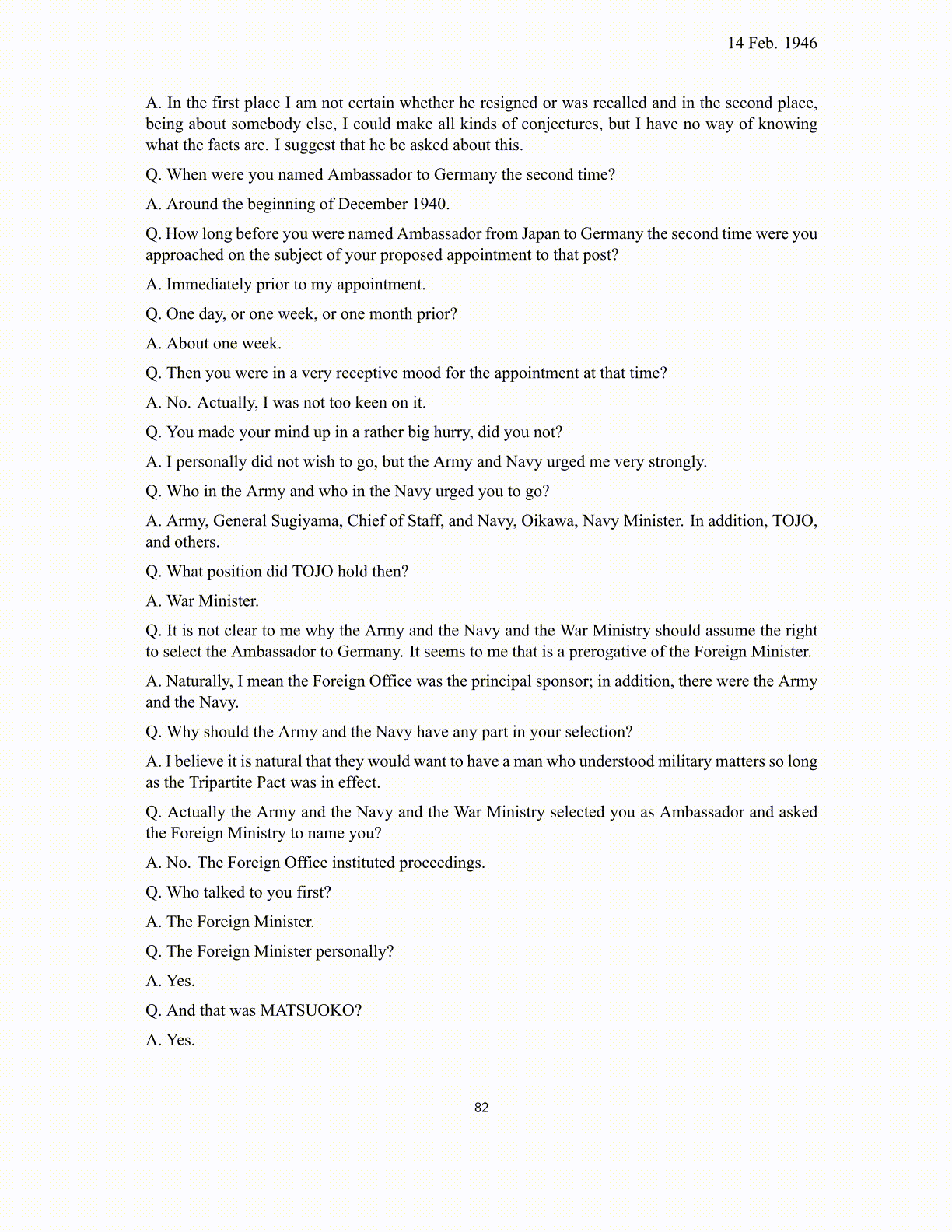
14 Feb. 1946 A. In the first place I am not certain whether he resigned or was recalled and in the second place, being about somebody else, I could make all kinds of conjectures, but I have no way of knowing what the facts are. I suggest that he be asked about this. Q. When were you named Ambassador to Germany the second time? A. Around the beginning of December 1940. Q. How long before you were named Ambassador from Japan to Germany the second time were you approached on the subject of your proposed appointment to that post? A. Immediately prior to my appointment. Q. One day, or one week, or one month prior? A. About one week. Q. Then you were in a very receptive mood for the appointment at that time? A. No. Actually, I was not too keen on it. Q. You made your mind up in a rather big hurry, did you not? A. I personally did not wish to go, but the Army and Navy urged me very strongly. Q. Who in the Army and who in the Navy urged you to go? A. Army, General Sugiyama, Chief of Staff, and Navy, Oikawa, Navy Minister. In addition, TOJO, and others. Q. What position did TOJO hold then? A. War Minister. Q. It is not clear to me why the Army and the Navy and the War Ministry should assume the right to select the Ambassador to Germany. It seems to me that is a prerogative of the Foreign Minister. A. Naturally, I mean the Foreign Office was the principal sponsor; in addition, there were the Army and the Navy. Q. Why should the Army and the Navy have any part in your selection? A. I believe it is natural that they would want to have a man who understood military matters so long as the Tripartite Pact was in effect. Q. Actually the Army and the Navy and the War Ministry selected you as Ambassador and asked the Foreign Ministry to name you? A. No. The Foreign Office instituted proceedings. Q. Who talked to you first? A. The Foreign Minister. Q. The Foreign Minister personally? A. Yes. Q. And that was MATSUOKO? A. Yes. 82